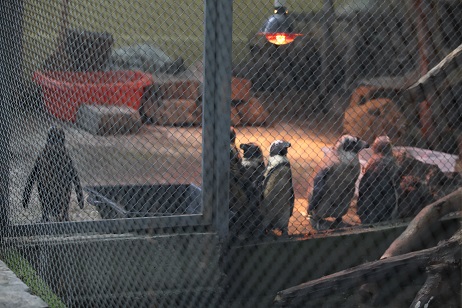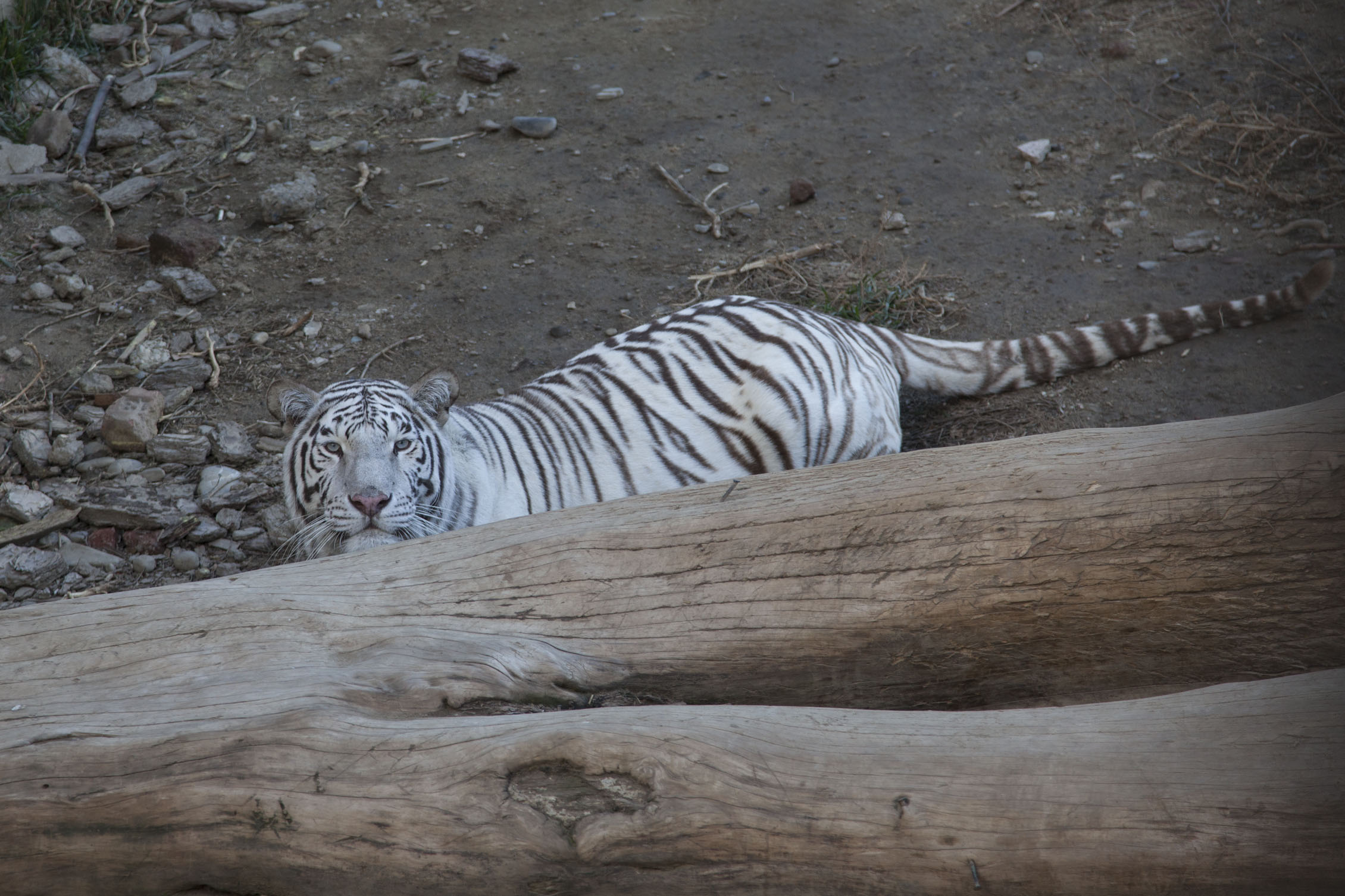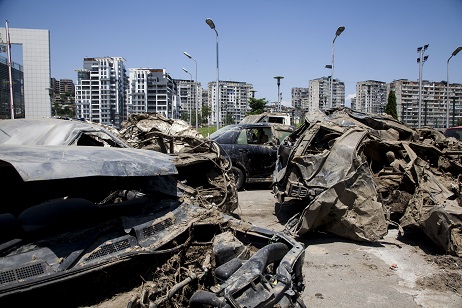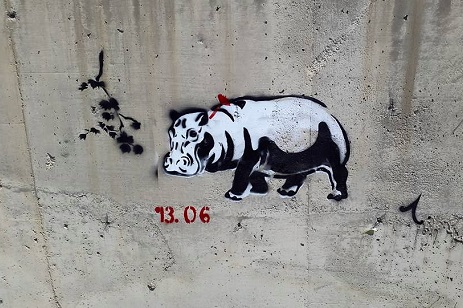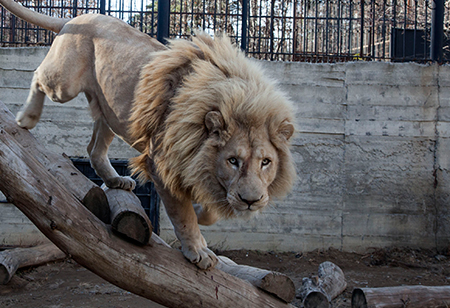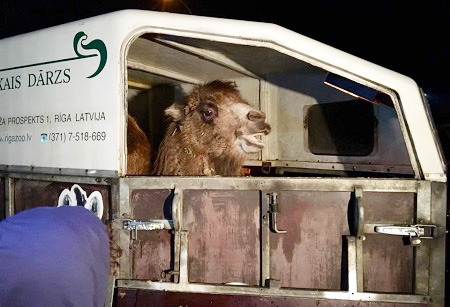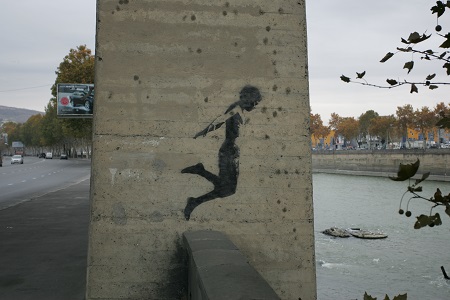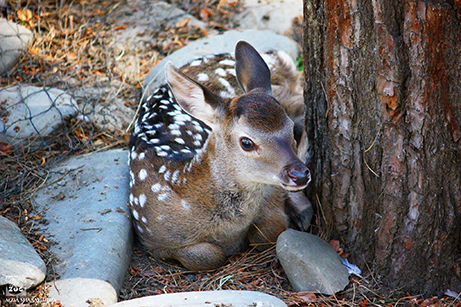Tbilisi flood: Meet the Tbilisi Zoo survivors
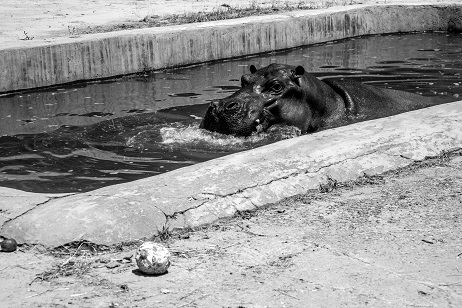
Almost six days has passed since Tbilisi Zoo was hit by a flash flood, causing the death of hundreds of animals and leaving the animal park in a state of complete chaos.
In the days since the flood zoo staff, search and rescue officials and volunteers have worked tirelessly to recover the bodies of humans and animals that died in the disaster, clear tonnes of mud and debris from animal cages, while still caring for the animals that survived the June 13 tragedy.
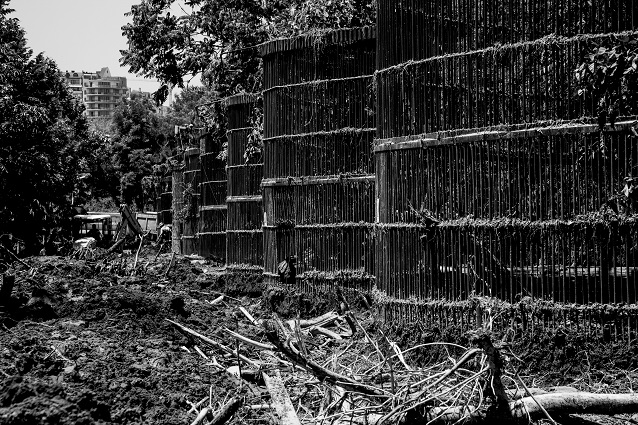
This is what the lower part of Tbilisi Zoo looks like today. Photo by N.Alavidze/Agenda.ge
Tbilisi Zoo lost three of its staff and about 300 (half) of the animals that called Tbilisi Zoo home. Several animals managed to escape from the flooded territory and all have been recovered except two – a tiger and a striped hyena still remain unaccounted for.
Until all animal cages have been cleared of debris, Tbilisi Zoo Administration said these animals had to be presumed missing and potentially wandering around the city.
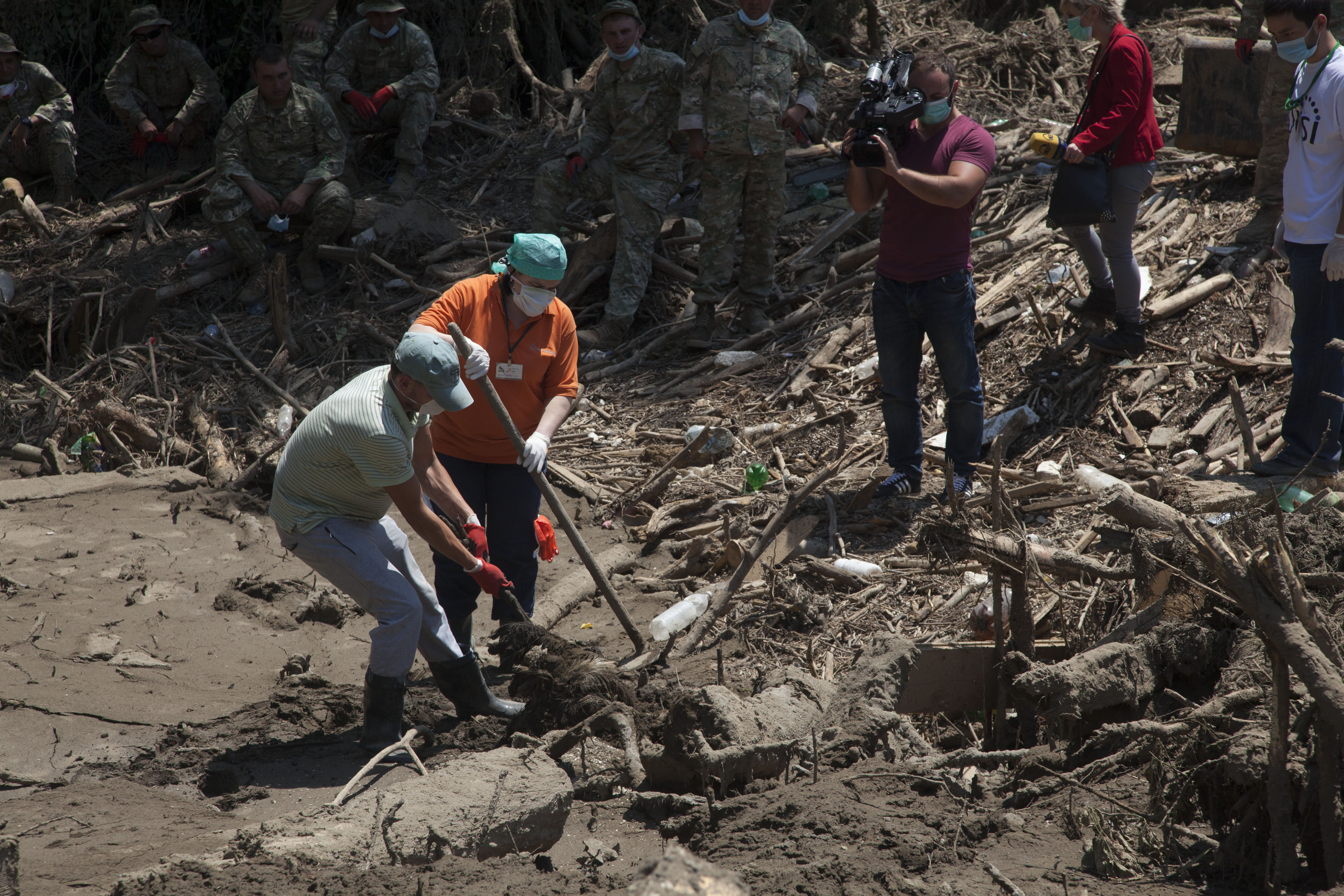
Specialists try to remove a dead animal's body from the flood damage. Photo by N.Alavidze/Agenda.ge
Animals that lived in the lower part of the zoo did not survive the flood but the animals that lived on higher territory were alive and well.
Rescue operations began immediately after Saturday night’s fatal flood but high summer temperatures in the days since could cause potentially serious problems at Tbilisi Zoo territory.
Tbilisi Zoo director Zurab Gurielidze announced that all zoo animals had been micro-chipped however this was only useful for identifying animals not searching for them.
"These [microchips] would help us very much to identify the bodies but there are some cases where the chips have broken or got wet or damaged, and they cannot help us in the search activities," he said.
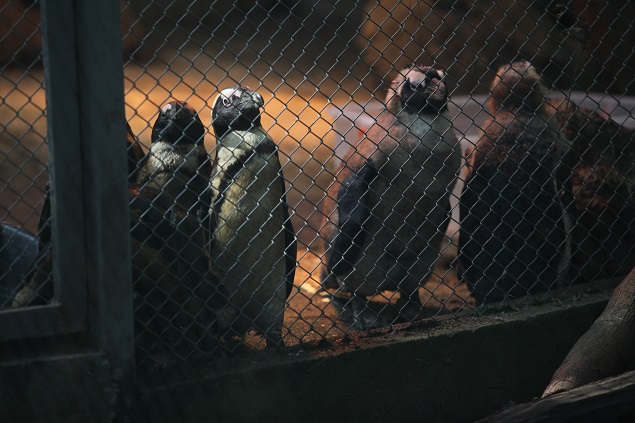
Officials said six penguins survived the flood on Saturday night. Photo by N.Alavidze/Agenda.ge
Moving around the zoo territory today was prohibited unless people wore special protective items. With temperatures exceeding 30C, germs and diseases found on decomposing bodies of drowned animals could easily spread to other living beings, said officials.
The main work now carried out at Tbilisi Zoo aimed to prevent the spread of disease from the dead animals to surviving animals.
Georgian authorities asked volunteers to leave the zoo territory in order to reduce the risk of any diseases turning into an epidemic. Only specialists and rescue servicemen are now allowed to work at the site and must wear protective gear.
The smell of the rotting flesh made it very unpleasant to remain in the area for more than five minutes.
Disinfection barriers have been installed at the zoo entrance so workers can clean themselves before venturing into the public.
The animals that did not survive Saturday night’s disaster included bears, big cats, wolves and other large animals. All animals that did survive were now being housed in temporary enclosures in the upper part of the Zoo. The surviving animals included elephants, two adult white lions and a cub, leopards, deer, zebra, lama, horses, yaks, a tapir, rhinoceros, civet, serval, wild goats and several birds. Two wolves, several penguins, crocodiles, a hippopotamus, a baby wild boar, zebra, red deer and horses also survived.
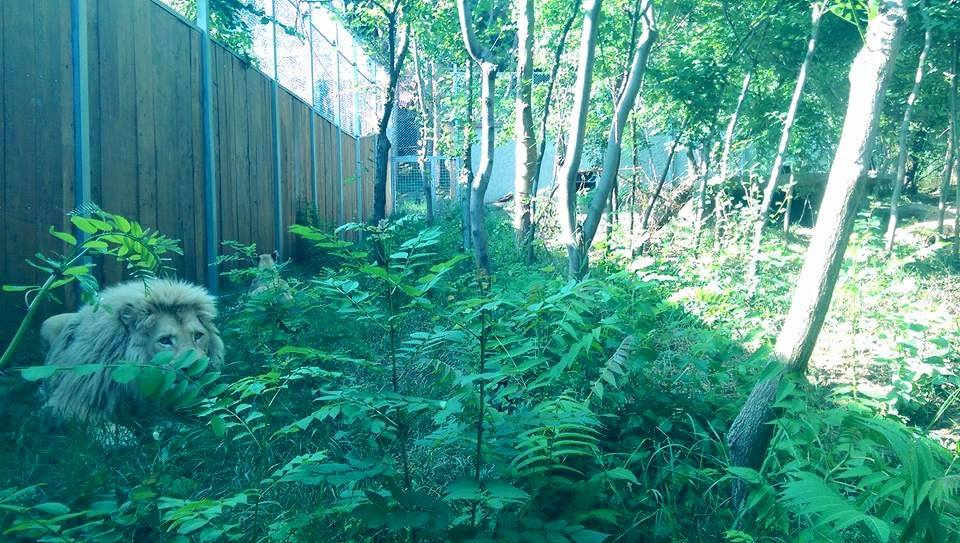
This white lion named Sam and his partner and cub survived the deadly flood in Tbilisi. Tbilisi Zoo photo.
Tbilisi Zoo Administration confirmed the reptile tanks were not affected by the flood and all dangerous snakes remained locked up safely.
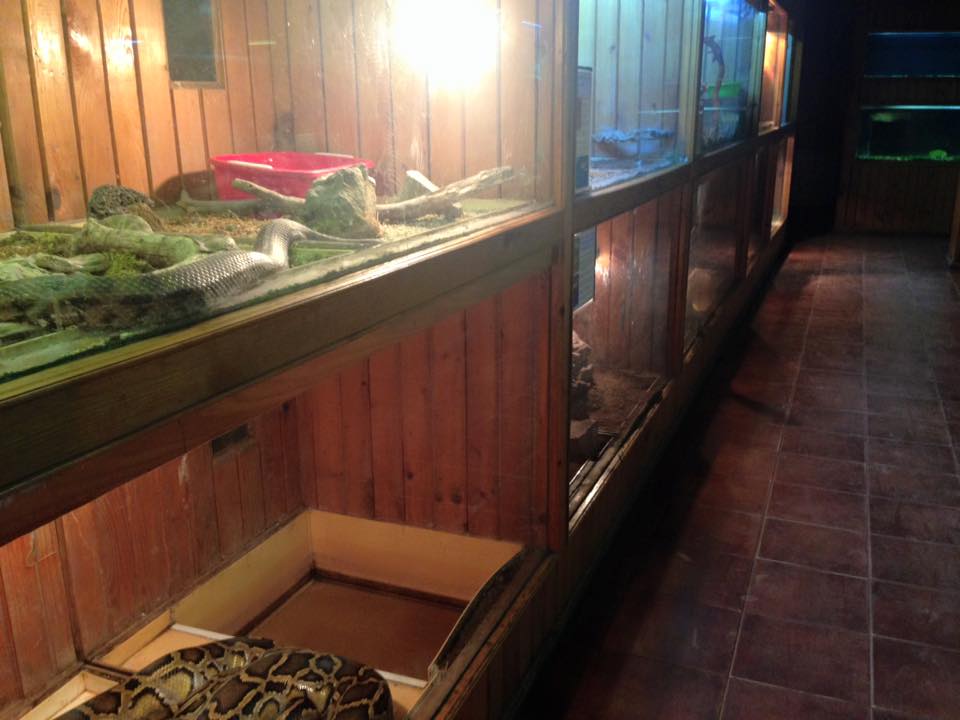
The reptile tanks were not damaged in the flood. Tbilisi Zoo photo
To help Tbilisi Zoo overcome the tragedy, several international specialists from the Jerusalem Biblical Zoo and Prague Zoo have arrived in Tbilisi to offer assistance. The experts brought with them specialist equipment and experience of how to work during disasters, which they kindly shared with the Georgian side.
 Tweet
Tweet  Share
Share
